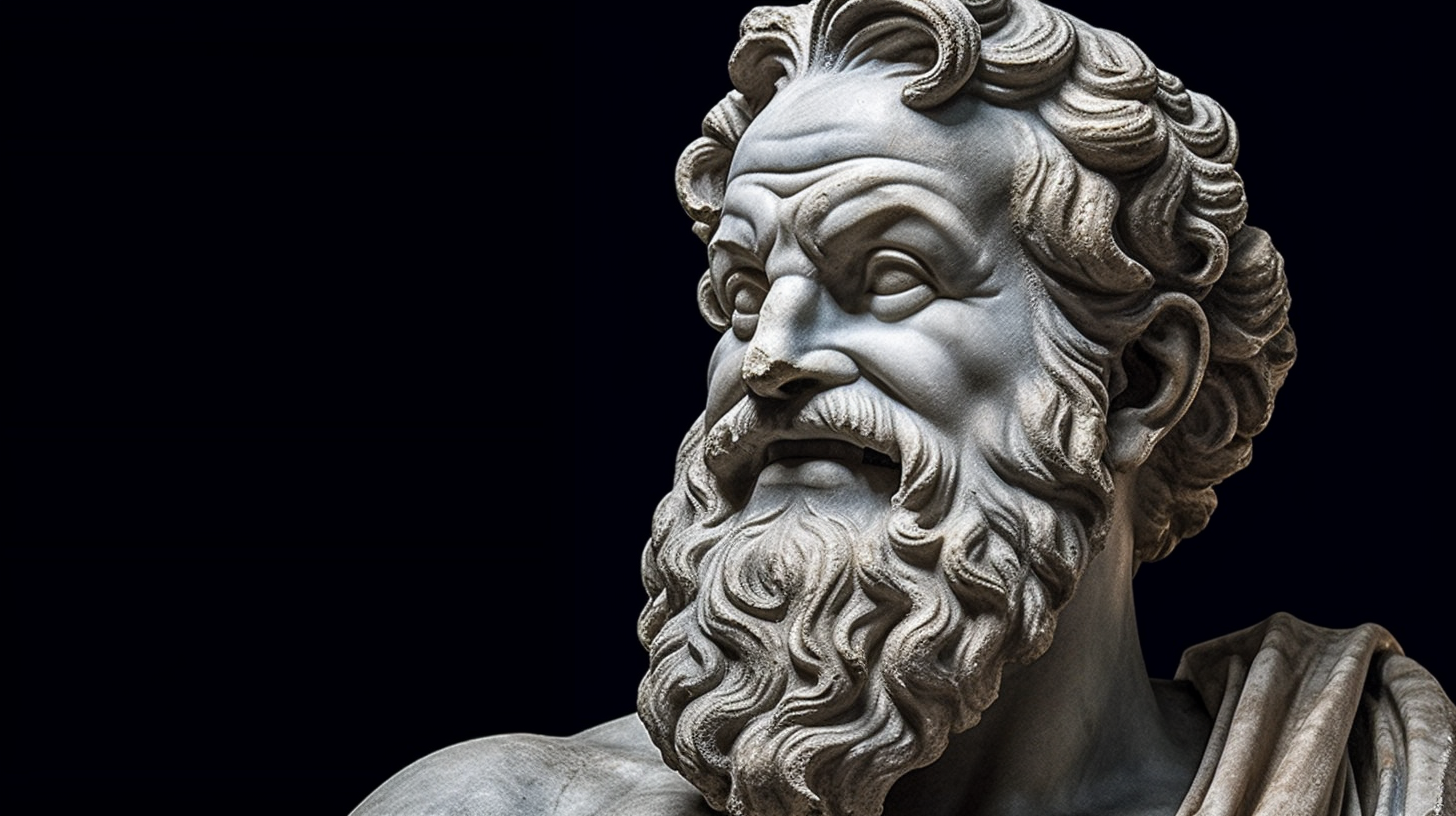The Philosophy of Happiness: From Aristotle's Eudaimonia to Modern Positive Psychology
In the pursuit of happiness, humanity has long sought solace in the teachings of the wise, from the ancient philosophers to the modern psychologists. Yet, it is imperative that we critically examine these philosophical and psychological doctrines, challenging their conventional wisdom and unmasking the illusions they perpetuate. Today, we shall embark on a cerebral journey through the ages, dissecting the philosophy of happiness from Aristotle's Eudaimonia to modern positive psychology. Brace yourselves for a candid exploration of intellectual rigour, where the fickle nature of joy is laid bare.

The Aristotelian Eudaimonia: Ideal or Illusion?
Let us commence with Aristotle, the revered philosopher of antiquity, who championed the concept of eudaimonia, often translated as "flourishing" or "the good life." According to Aristotle, true happiness lies not in fleeting pleasures but in cultivating virtue and realizing our potential. However, despite the allure of his doctrine, we must critically challenge its validity.
Aristotle's eudaimonia rests upon the notion that particular virtues are inherent to human nature and lead to flourishing. But is this assumption not marred by cultural and historical biases? Are virtues genuinely universal, or are they contingent upon societal norms? Can we confidently assert that the virtues extolled by Aristotle—courage, temperance, wisdom—are the ultimate path to happiness for all people in all times and places?
Moreover, Aristotle's eudaimonia is entrenched in a hierarchical worldview, where the pursuit of individual excellence takes precedence over communal well-being. This aristocratic lens fails to acknowledge the interconnectedness of human lives and the moral imperative to consider the happiness of all. Can true happiness indeed be achieved when it is pursued at the expense of others?
The Myth of Modern Positive Psychology:
Fast forward to the modern era, where the mantle of understanding happiness has been passed on to positive psychology. Embracing a more egalitarian stance, positive psychology aims to uncover the secrets to happiness and well-being for the masses. Yet, beneath its seemingly benevolent facade lie myths and misconceptions we must confront head-on.
Positive psychology, emphasizing positive emotions, personal strengths, and resilience, often reduces happiness to a fleeting emotional state. As a result, happiness becomes a commodity to be chased and consumed rather than a complex and nuanced experience deeply intertwined with the human condition. By oversimplifying happiness, positive psychology risks obscuring the rich tapestry of human emotions, including the vital role played by sadness, anger, and despair in our growth and self-understanding.
Furthermore, the relentless pursuit of happiness promoted by positive psychology can foster a toxic culture of self-absorption and narcissism. When pleasure becomes the sole metric we use to evaluate our lives, we neglect the profound value of struggle, adversity, and pursuing larger ethical and moral goals. In our quest for happiness, are we not at risk of losing sight of the very essence of what it means to be human?

Challenging the Status Quo: A Holistic Perspective
To navigate the treacherous waters of happiness, we must broaden our understanding beyond the confines of Aristotle's eudaimonia and the illusions of modern positive psychology. Instead, we must acknowledge the interplay of various factors contributing to our well-being, including social relationships, intellectual stimulation, and a sense of purpose.
Drawing upon history, we find that some of the greatest minds have cast doubt upon the simplistic pursuit of happiness. Friedrich Nietzsche, the enigmatic philosopher, warned against the dangers of bland happiness devoid of struggle and self-overcoming. The existentialists, such as Jean-Paul Sartre and Albert Camus, emphasized the inherent tension between the search for meaning and the harsh realities of existence.
In embracing a more holistic perspective, we must recognize the importance of embracing our vulnerabilities and the full spectrum of human emotions. Happiness, in its most accurate form, emerges from our ability to find meaning and purpose amidst the vicissitudes of life. It is not a destination to be reached but a continuous journey of growth and self-discovery.

Conclusion:
As we conclude our exploration of the philosophy of happiness, we find ourselves at a crossroads. The illusions of happiness perpetuated by Aristotle's eudaimonia and the myths of modern positive psychology are exposed under the sharp lens of critical scrutiny. We must question the assumptions that underpin these doctrines, challenging their rigidity and narrowness. In our pursuit of happiness, we must embrace the complexity and ambiguity of human existence, recognizing that true fulfillment lies not in the pursuit of happiness itself but in the purpose of a life well-lived.

Plato Re-Imagined
This course offers 32 comprehensive lectures exploring most of Plato's dialogues. These lectures guide students toward a consilient understanding of the divine—a concept that harmonizes knowledge across disciplines and resonates with secular and religious leaders. As a bonus, Lecture #33 focuses on consilience, demonstrating how different fields of knowledge can converge to form a unified understanding.






